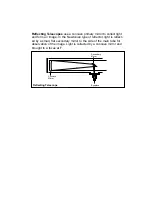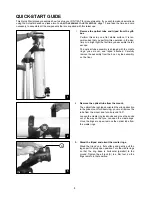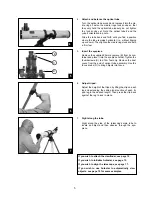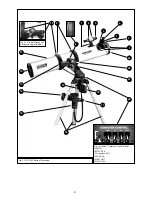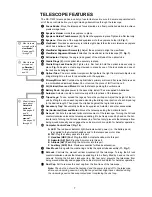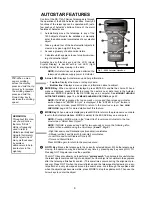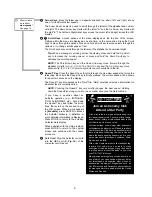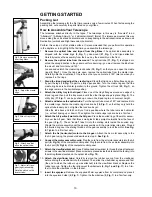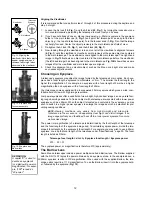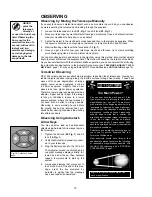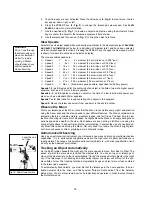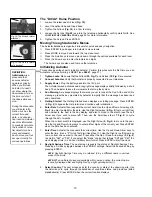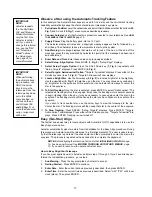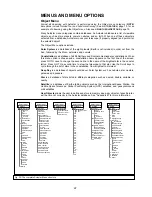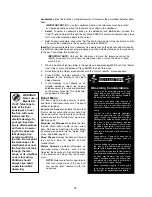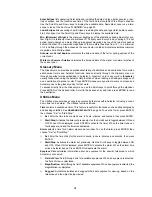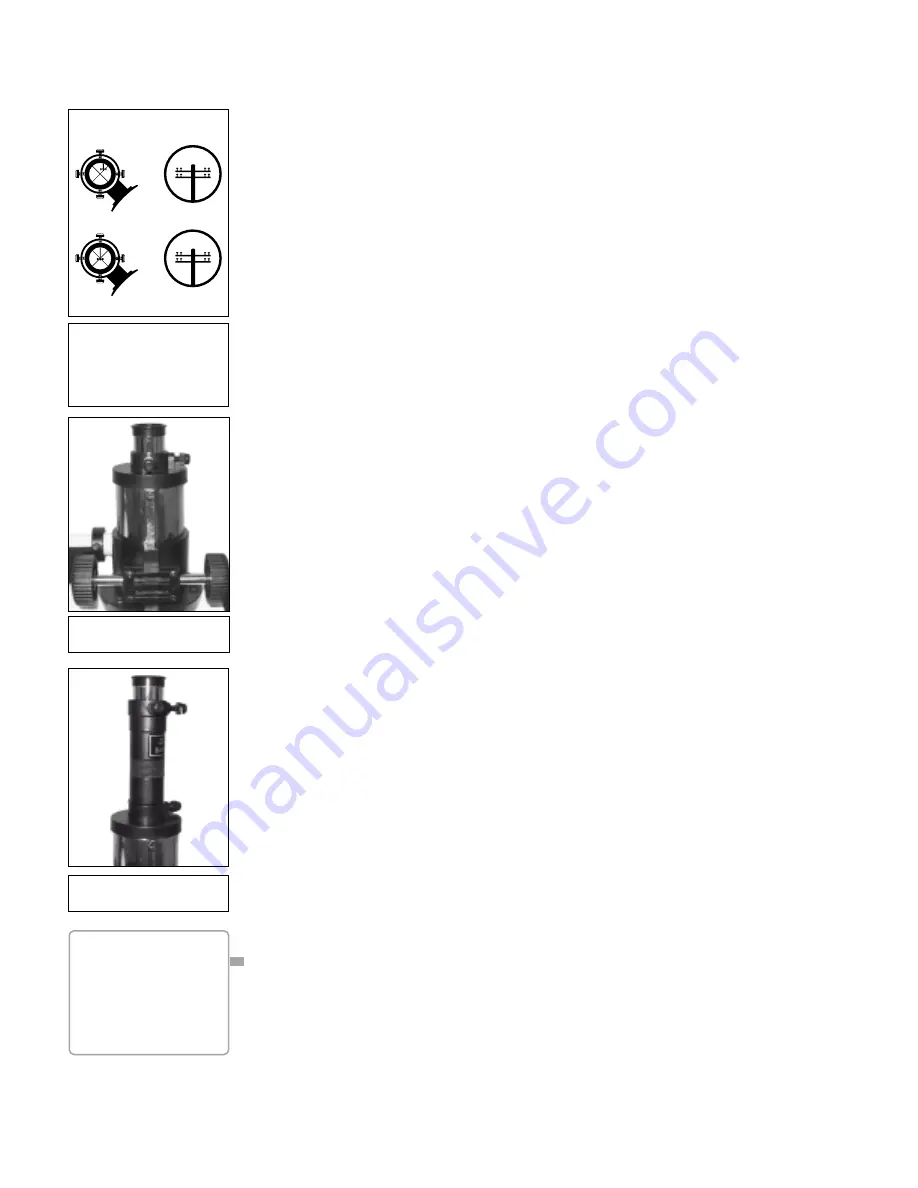
DEFINITION:
A capital "X" is used to
denote an eyepiece's
(or a Barlow's) power or
magnification. For exam-
ple, "40X" is read as
"40-power."
12
Aligning the Viewfinder:
It is recommended that you perform steps 1 through 4 of this procedure during the daytime and
step 5 at night.
1.
Loosen the Az lock (19, Fig. 1) and the Alt lock (22, Fig. 1) by turning the locks about one
turn counterclockwise, permitting the telescope to move freely on its axes.
2.
If you have not already done so, place a low-power (e.g., 25mm) eyepiece in the eyepiece
holder of the main telescope (2, Fig. 1) and point the telescope at an easy-to-find land
object (e.g., the top of a telephone pole). Turn the focuser knob (1, Fig. 1) so that the image
is sharply focused. Center the object precisely in the main telescope’s field of view.
3.
Re-tighten the Az lock (19, Fig. 1) and the Alt lock (22, Fig. 1).
4.
Now, looking through the viewfinder, turn some or all of the viewfinder’s alignment screws
(6, Fig. 1) until the viewfinder’s crosshairs point precisely at the same object as centered
in the main telescope. The viewfinder is now aligned to the main telescope. The right-hand
image in Fig. 13A shows an object centered in the main telescope before the viewfinder
(the left-hand image) has been aligned to the main telescope. Fig. 13B shows these same
images after the viewfinder and main telescope are aligned.
5. Check this alignment on a celestial object, such as the Moon or a bright star, and make
any necessary refinements.
Choosing an Eyepiece
A telescope’s eyepiece magnifies the image formed by the telescope’s main optics. Each eye-
piece has a focal length, expressed in millimeters, or “mm.” The smaller the focal length, the
higher the magnification. For example, an eyepiece with a focal length of 9mm has a higher
magnification than an eyepiece with a focal length of 25mm.
Your telescope comes supplied with a low-powered 25mm eyepiece which gives a wide, com-
fortable field of view with high image resolution.
Low power eyepieces offer a wide field of view, bright, high-contrast images, and eye relief dur-
ing long observing sessions. To find an object with a telescope, always start with a lower power
eyepiece such as a 25mm. When the object is located and centered in the eyepiece, you may
wish to switch to a higher power eyepiece to enlarge the image as much as practical for pre-
vailing seeing conditions.
NOTE:
Viewing conditions vary widely from night-to-night and site-to-site.
Turbulence in the air, even on an apparently clear night, can distort images. If an
image appears fuzzy and ill-defined, back off to a lower power eyepiece for a more
well-resolved image.
The power (or magnification) of a telescope is determined by the focal length of the telescope
and the focal length of the eyepiece being used. To calculate eyepiece power, divide the tele-
scope's focal length by the eyepiece's focal length. For example, you may wish to use a 25mm
eyepiece. Look up the focal length of the telescope under "Specifications," page 30. The focal
length is listed as 910mm.
Telescope focal length divided by Eyepiece focal length = Eyepiece power
910
25 = 37
The eyepiece power, or magnification is therefore 37X (approximately).
The Barlow Lens
Some Meade telescopes include a power multiplier called a Barlow lens. The Barlow supplied
with the DS-114AT triples the power obtained by an eyepiece alone. In the example above, a
25mm eyepiece results in 37X magnification. When used with the supplied Barlow, the tele-
scope optics result in a 111X magnification. To use the Barlow, insert it into the eyepiece hold-
er, followed by the eyepiece (Fig. 15).
Fig. 13: Aligning the
viewfinder. Note that objects
appear upside-down and
reversed left-for-right when
observed in the viewfinder.
Telescope
Viewfinder
Eyepiece
A. Not aligned
B. Aligned
Fig. 14: Eyepiece and
focuser assembly.
Fig. 15: Eyepiece and
Barlow lens.


